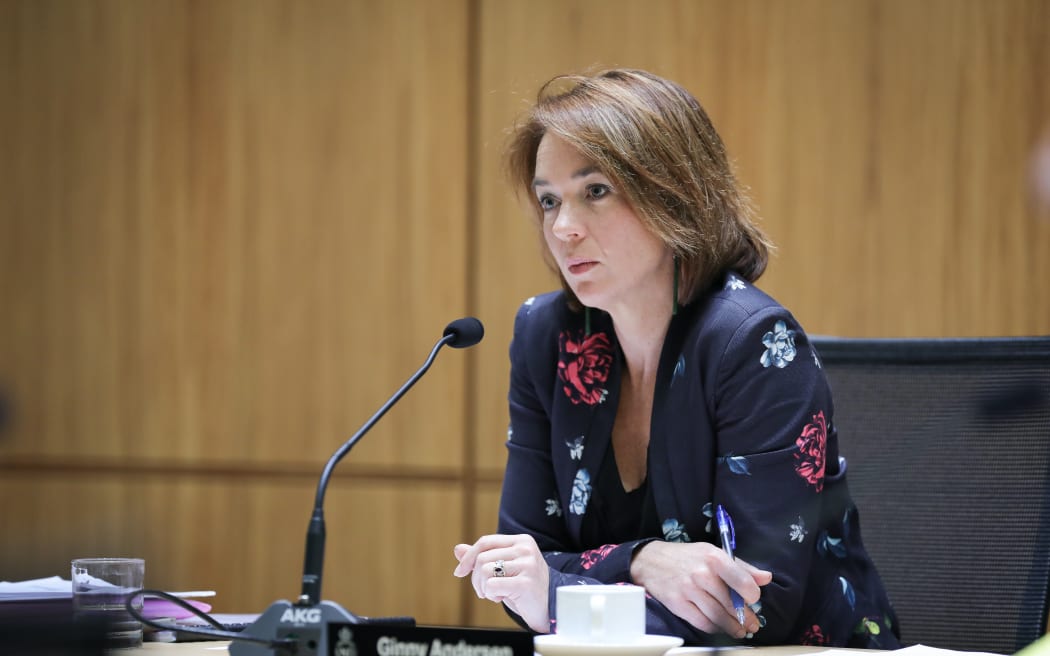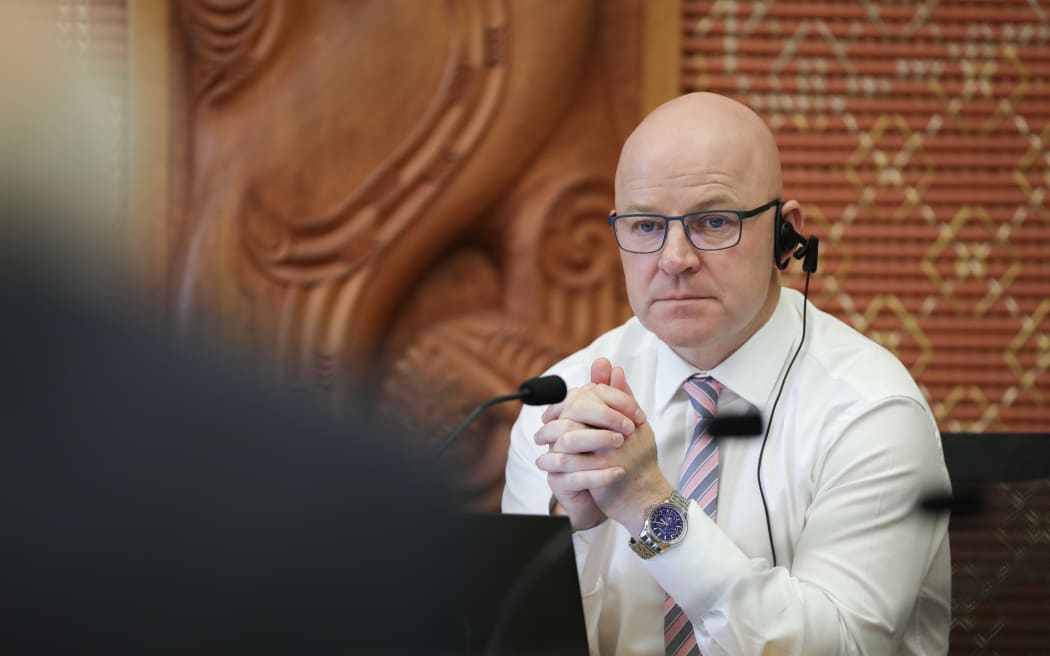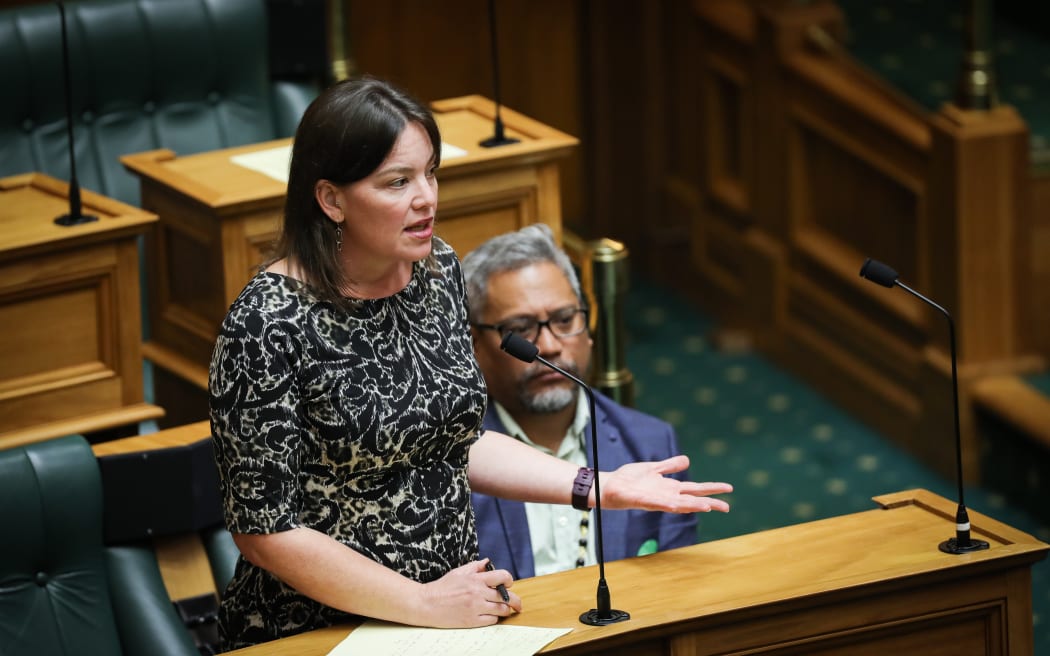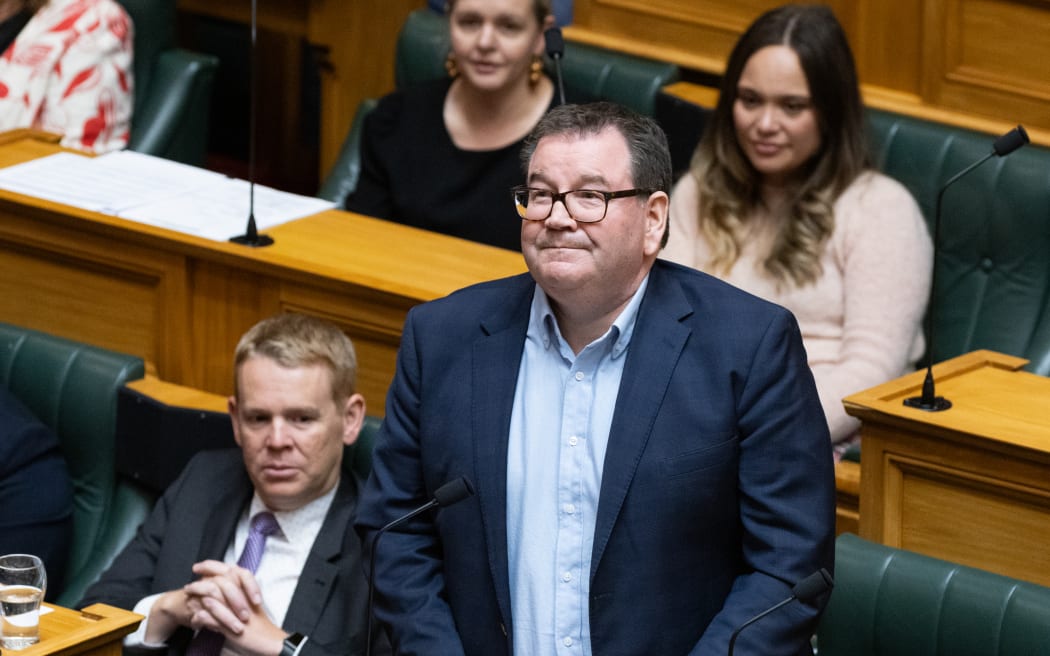Over the last six years, Parliament’s clerks have had to vet about 40,000 written questions each year.
A written question – from an opposition MP to a minister – is a commonly used tool in Parliament, but not well-known outside political circles.
They are not as familiar to the public as the more theatrical and confrontational oral question, as asked during Question Time.
Written questions exist in the shadow of their oral cousins. You can find them published on Parliament’s website: both question and - when it is given - the answer alongside it.
So how are written questions used and what are the democratic benefits?

Ginny Andersen Photo: ©VNP / Phil Smith
Drilling down
Opposition MP Ginny Andersen of the Labour Party says the written question is a great tool for holding the government to account.
One of the benefits is that there is no limit as to how many questions an MP can lodge. In terms of what they are about, being factual is the key concern.
"You look for a range of different sources: it might be a report in the media; it could be a statement the minister's made; it may be something they've even said in an oral question that you'd like to drill down a bit further and get some additional information.
"It's really important that it's based on fact, and you also need to verify where you've got your source from."
It can be helpful to consider the written question as part of a set of questioning tools used by MPs to keep tabs on the Government.
“So the three main tools would be the Official Information Act [OIA] and putting our question through that way; and then once you've got a pile of information from the OIA then you would look further with written parliamentary questions. And then when you've got an area you think is of high interest (in the public interest, to hold the government to account), that would be when you put up an oral parliamentary question,” Andersen explains.
Browsing through the list of written questions on Parliament’s website, you will see groups of questions by an MP to the same minister, a sequence of related interrogations on a common subject (such as a statement, a meeting or a policy). Is the written question format just a fishing expedition?
“It can be. You usually have a general direction that you think you’re wanting to head in,” Andersen says.
“You think there's something in there that might be within the public interest to interrogate further, and so you're trying to understand as much as possible about a particular pathway that the government's going down."

Matt Doocey. Photo: ©VNP
Building trust
Cabinet Minister Matt Doocey had plenty of practice in the previous term lodging written questions to ministers in the previous Labour government, including Andersen. Now he is on the other end of the process.
“We see with written parliamentary questions the ability for the executive or the cabinet (who are very powerful, because they are making laws of the land and deciding budgetary decisions), that any member of the opposition can write a written parliamentary question to a minister about a specific issue and that needs to be responded in a timely fashion.”
The required turn-around period for a minister to answer a written question is six working days.
“I think that brings real transparency, real openness. It requires ministers to be very clear about what's happening, and I think builds trust in the democratic system and Parliament as a whole,” Doocey says.
“People are at times critical of the adversarial approach we have in the Westminster parliamentary system, but I think it's quite right that anyone who is making a decision should be expected to to stand up and defend that position and that's what a written parliamentary question does.”
Useful both ways
Green Party MP Julie-Anne Genter has also been a government minister before and knows about both sides of the written question process. She found the format useful either way.
“I have found written questions really helpful as an opposition member, but it does depend on the attitude of the ministers and the government of the day. My first six years in Parliament [2011-2017] I was in opposition, and we could get useful information from written questions, but I think that government tried to discourage us from asking by giving us unhelpful answers a lot of the time. But every now and then you got a really good answer,” Genter says.
“What I found most interesting as a minister [2017-2020] is sometimes I would sign off answers that would be information that I was really interested in, and it was easier to get that information from an opposition member submitting a written question than for me directly asking staff the question.
"In some ways that process is more direct, it's quick, it can get factual information. I think it's really helpful for the public that Parliamentarians have this ability to ask these questions," she says.

Julie Anne Genter. Photo: ©VNP / Phil Smith
Because there is so much competition to get an oral question in (given the limited number apportioned), written questions can be an alternative way of pursuing the probing of a minister. An oral question can be a follow-up to a written question, or vice versa.
Asked whether submitting copious written questions is ultimately a nuisance for ministers, Doocey suggests MPs bring their own style to how they answer a question.
“I would say some are more concise than others, some are more defined than others, and some probably at times value volume over value. But in the end that’s the democratic system, because not only is a minister being judged by the answers of a written parliamentary question but actually the opposition spokesperson is being judged by the quality of their questioning as well.”
Time consuming
In the final term of the previous National Party-led government, from 2014-2017, there were 41,526 written questions lodged.
When the National and ACT parties went into opposition for the next two terms, the number of written questions soared to 113,519 for the 52nd Parliament and a whopping 133,576 for the 53rd Parliament.
“As a minister [2017-2020] I had no problem signing off answers that were useful,” Genter says. “I did think at the time the opposition had a deliberate strategy of spamming us with huge numbers of questions just to slow us down, and that I didn't think was very helpful to the democratic process.
“But when there are good questions and useful information is produced by the agencies in the ministries and signed off by ministers, I think that's really important and helpful.”
After several months of the 54th Parliament, about 12,000 written questions have been lodged so far, a little shy of the rate that the Labour-led governments had to contend with, but still a large volume.
Backroom staff
The main thing we should note about written questions is that someone has to do the work involved, as former finance minister Grant Robertson reminded MPs during the adjournment debate for the previous parliament.
“I think anyone who's thinking about slashing the public service might want to have a think about all of the work that goes into answering written questions and Official Information Act requests. On that note, I want to thank the public servants who serve us when we are in government, to the best of their abilities, whoever that government might be.”

Grant Robertson Photo: Phil Smith
And how many ‘backroom staff’ are employed as a result of the thousands of questions each week, plus the many Official Information Requests? Surely, that would be an excellent question for a slew of OIAs.
As far as the parliament end of the process goes, it falls on the clerks in the house office to vet all written questions. For instance, they must authenticate any quote included in a question or check that the question relates to an area of ministerial responsibility, that it is appropriate in terms of parliamentary language, and that it is not merely a political attack. And they must do that for sometimes hundreds of written questions each day, often working with the MP to bring their questions in order.
Frustrations
The six-day deadline for answering a written question is not always met. Far from it. At times the backlog of pending answers builds up. The Speaker of Parliament is tasked with policing compliance with written question obligations.
The recent Speaker Trevor Mallard at one point clamped down on the Labour government because of what he felt was the tardiness of ministers in responding to written questions - although with the massive number of questions coming through, it is understandable that keeping up was difficult. His prompt to encourage speed was to award the opposition with more oral questions until the backlog cleared.
It is not just lateness of answers that can be problematic. Sometimes the answers can be decidedly unhelpful, snarky even. Last week there were complaints about the “gaslighting” tone of the replies from a government minister to written questions about the proposed Fast Track Approvals Bill.
Julie-Anne Genter acknowledges the danger of written questions becoming a futile process if a minister is unwilling to divulge information.
“So they’ll try to discourage us from asking written questions by just gaming their answers, and at some point we’ll have to complain to the Speaker.”
If a minister is beginning to tire of approving answers to written questions, one option that can reduce the number coming in is to proactively release information. This is consistent with the goal of open, transparent government, which is, after all, what the written question format is designed to help achieve.

